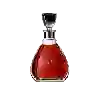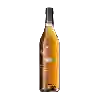
Winery Berta MaillolHors d'Âge Banyuls Doux Naturel
This wine generally goes well with
Details and technical informations about Winery Berta Maillol's Hors d'Âge Banyuls Doux Naturel.
Discover the grape variety: Bia blanc
An ancient noble grape variety of the Isère Valley and the Rhône Valley department, which was very present before the phylloxera crisis. In the Saint Marcellin region (Isère), it was often associated with Jacquère and Marsanne. Almost unknown in other French regions and other wine-producing countries, it is in the process of disappearing, although it has been registered since 2011 in the Official Catalogue of wine grape varieties, list A1.
Last vintages of this wine
The best vintages of Hors d'Âge Banyuls Doux Naturel from Winery Berta Maillol are 2014, 2015
Informations about the Winery Berta Maillol
The Winery Berta Maillol is one of of the world's greatest estates. It offers 19 wines for sale in the of Banyuls to come and discover on site or to buy online.
The wine region of Banyuls
Banyuls wines come from the South-eastern Part of Roussillon, in the south of France, in the lower Pyrenees, a few kilometres from the Spanish border. These naturally Sweet wines are consumed both as an aperitif and as a dessert. They come in a wide range of hues, from GoldenGreen (Banyuls Blanc) to Amber (Banyuls Ambré) to the intense garnet of the standard Banyuls Rouge. Unusually among the natural sweet wines of France, all Banyuls wines are made primarily from Grenache grapes of various colors.
The wine region of Languedoc-Roussillon
Languedoc (formerly Coteaux du Languedoc) is a key appellation used in the Languedoc-Roussillon wine region of southern France. It covers Dry table wines of all three colors (red, white and rosé) from the entire region, but leaves Sweet and Sparkling wines to other more specialized appellations. About 75% of all Languedoc wines are red, with the remaining 25% split roughly down the middle between whites and rosés. The appellation covers most of the Languedoc region and almost a third of all the vineyards in France.
The word of the wine: Cupbearer
Person in charge of choosing and serving wines. Old term for the sommelier.














